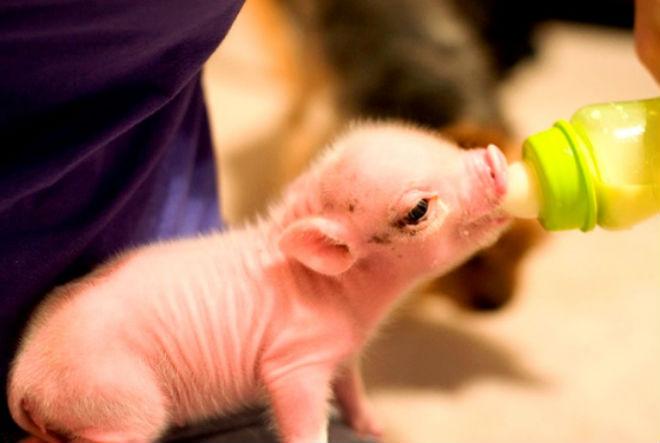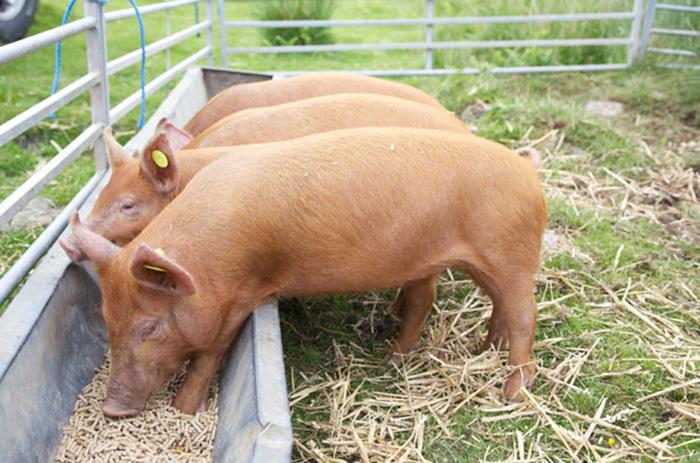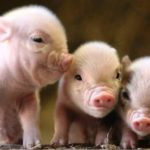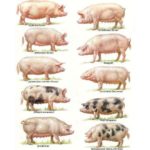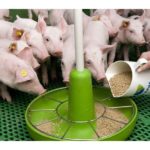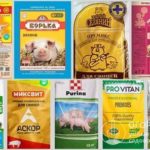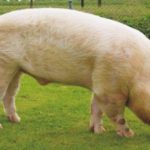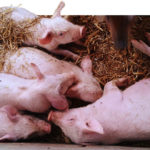Fish oil is an important and useful element in the diet of adult pigs and piglets, capable of replenishing the lack of vitamins A and D, omega-3 in the body of fattening animals and during winter rearing. With the help of an appetizing and aromatic additive, piglets are accustomed to dry food. How to properly give fish oil to piglets, how to calculate the dosage depending on the age and weight of the animal, they are interested in advance.
Benefits and harms
In what cases and why do veterinarians recommend adding fish oil to the diet of animals? Here are the main aspects:
- Prevention of rickets, tetany and anemia.
- Prevention of diseases of the gastrointestinal tract, in particular gastritis, gastroenteritis, and the cardiovascular system.
- Replenishment of vitamin D and A deficiency.
- Improving the quality of seed material of male sires.
- Rehabilitation of animals after limb fractures.
- Creation of stable immunity in small piglets.
- Helps young animals get used to dry food.
A lack of vitamin D in the diet of animals leads to disruption of phosphorus-calcium metabolism and hormonal balance.
Young animals are sharply retarded in development, piglets look “starved”, umbilical and scrotal hernias may form, there is a delay in the appearance of teeth, bones and limbs are deformed.
Negative aspects that may arise when feeding animals fish oil:
- Allergies may occur.
- Nausea, gastrointestinal upset.
The occurrence of such symptoms is possible in the case of individual intolerance to the animal added to the additive.
On a note. To check the likelihood of a possible allergy, the additive is applied to the piglet’s skin; if no redness appears, the additive can be used in feeding young animals.
Instructions for use of fish oil for pigs
To get the maximum effect from adding the drug to the diet of piglets, it is important to maintain the dosage and follow the instructions for using the supplement for young animals. Experienced farmers introduce vitamin preparations into the diet systematically, in courses. For example, a week with a supplement, a week without a supplement. They often use a scheme - every other day. The total duration of the course with breaks should not exceed three months.
The most popular fish oil among livestock farmers is in the form of a concentrate.The aroma of the additive attracts animals to food, so the smell is often used to accustom piglets to dry food. In addition, fish oil is often contained in multivitamin complexes for pigs; here its concentration is significantly lower, but the dosage and compatibility with other components of the complex are clearly defined. Modern vitamins are not inferior in quality to natural concentrates and are successfully used in animal husbandry. It is recommended to apply premixes once a day in full dose during morning feeding, adding the element to food.
Supplement dosage
The amount of the drug per day is determined by the age of the young animals. So 2-4 month old piglets are given about 15-20 grams of supplement per individual. This is the daily norm. For suckling piglets, 3 grams per day is enough.
If a farmer uses multivitamin complexes containing fish oil, then it is not advisable to feed piglets additionally with concentrate.
The rate of additives may vary depending on the breed of pigs being raised; for Vietnamese varieties, the rate of supplementation is halved and depends on the weight of the animal.
What do experts advise?
Pig farming is a developed branch of livestock farming today. For each breed of pig, recommended diets for fattening and raising young animals have been compiled. Tips from experienced farmers on feeding piglets with a fish oil supplement:
- It is recommended to start feeding piglets with premixes from the 5th day of life; the additive is added to the first feeding in the form of skim milk or yogurt.
- Strictly observe the dosage of supplements and the duration of the course.
- It is especially important to add fish oil to the diet of young animals in winter.
- Add fish oil to your lactating sow's diet.
- The nutritional supplement is added to food during morning feeding.
- Before using the supplement, make sure that the animals do not have allergies and do a skin test.
- When applying for the first time, reduce the base dosage by half.
- Use courses intermittently.
Livestock farming, and in particular pig farming, is a thriving productive sector of agriculture in our country. Creating a high-quality diet for pigs is an important goal and task of the farmer; the daily growth of young animals, their health and productivity will depend on the quality of the feed. Fish oil is an important element in the prevention of rickets and anemia in young animals. When it is added to the first complementary foods, young animals develop stable immunity to various diseases, and their metabolism begins to function correctly and efficiently.

